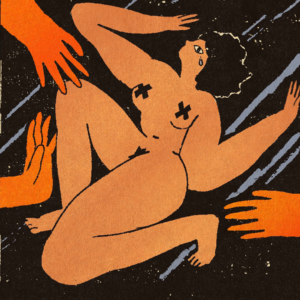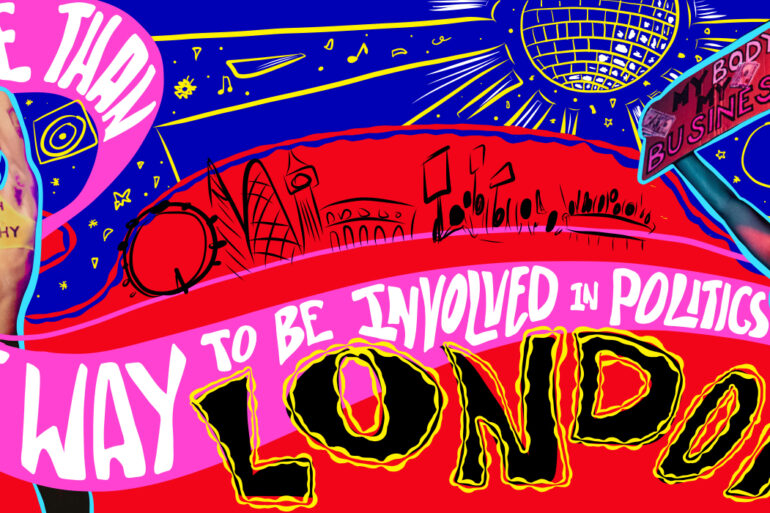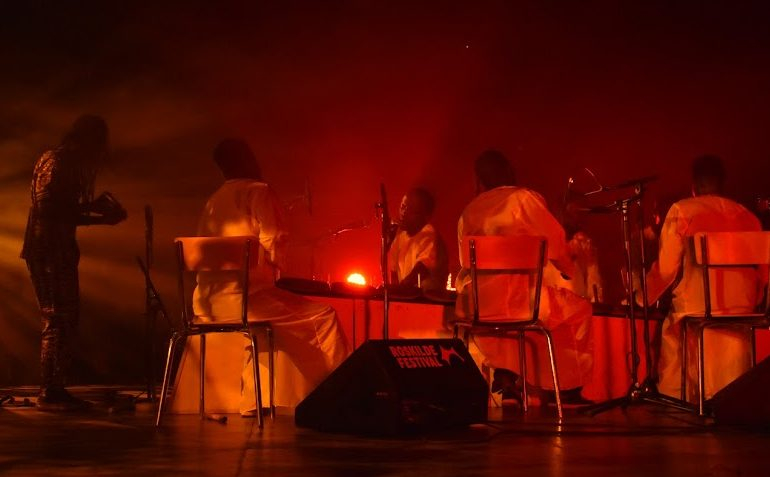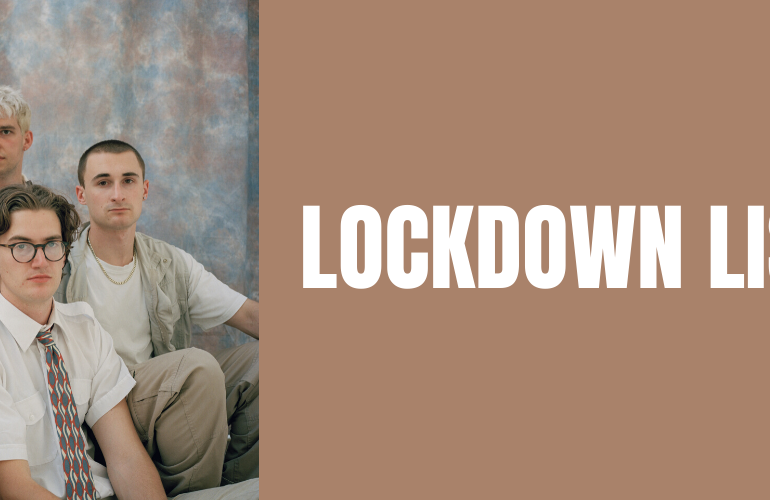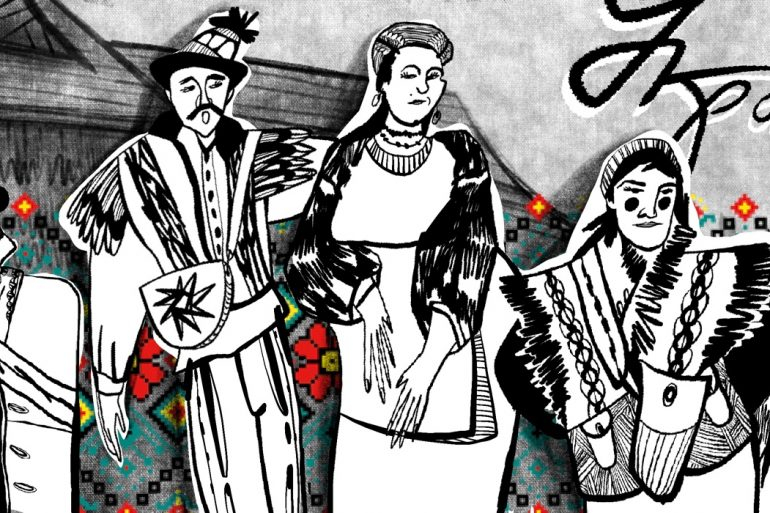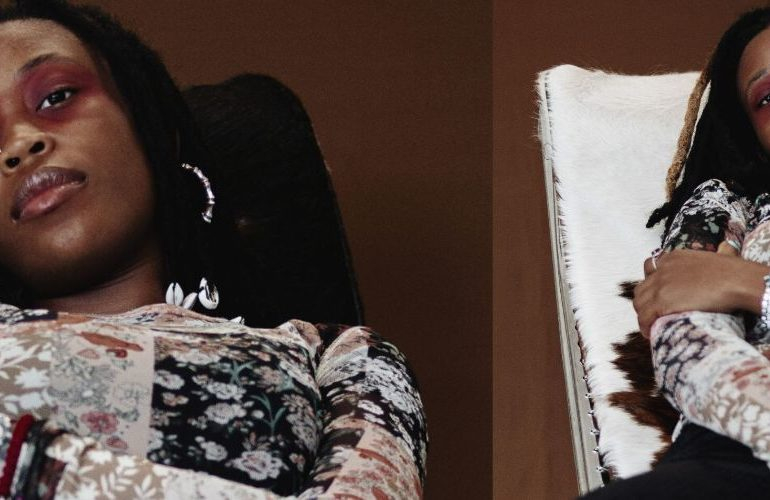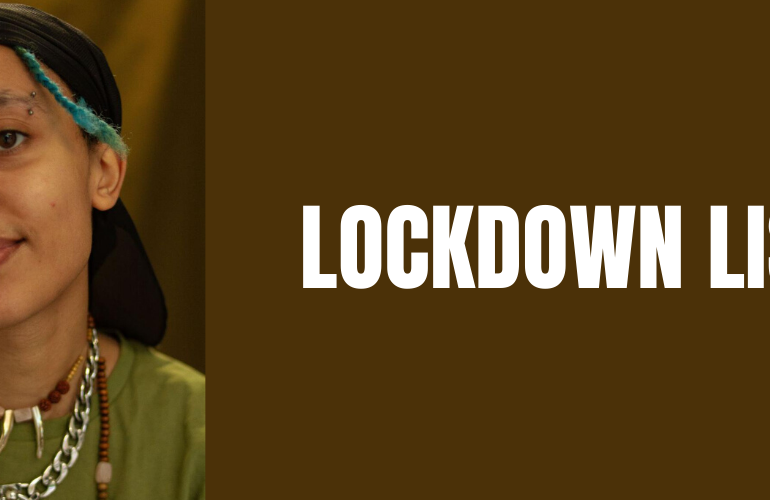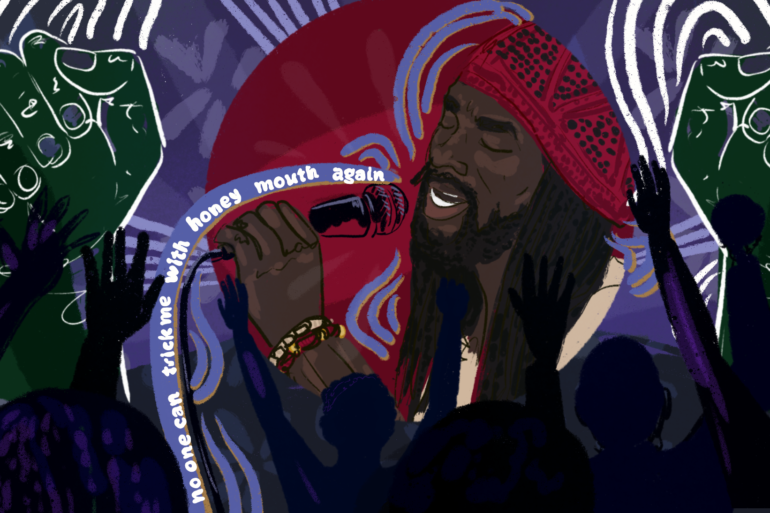Synth-pop musician Laika is used to being centre-stage. However, this familiarity isn’t solely born from her music career. In fact, Laika began her life as a performer as a cam girl on the popular live sex site Chaturbate. It was there she started singing and playing guitar as a way to distinguish herself – and garnered lots of positive reviews.
When Onlyfans started to gain popularity, Laika decided to make the switch so she could spend more time on her budding music career. She now pursues both and released a synth-pop album back in 2018.
However, this transition wasn’t an easy one. Not only was Laika worried that she wouldn’t be taken seriously as a musician due to prejudiced ideas surrounding her sex work, a lot of the issues she faced as a sex worker, primarily abuse from fans and major power imbalances, followed her into her music career.
The problems in the music industry
Unfortunately, Laika isn’t alone in this. Sexism, assault (primarily against women) and misogyny continue to be pervasive within the music industry.
As someone who’s been working as a music journalist for over four years, I’ve heard countless stories from musicians which attest to this. When I spoke to Laika over Zoom she echoes conversations I’ve certainly had before, and also, specifically recounts an experience she had working with a male music publicist.
“I gave him $2,000 for the work, but he ended up flipping the script on me, saying yes I’ll help you, but only if you send me feet pics and stuff. I was shocked at how quickly our relationship stopped being professional,” she explains to me over Zoom.
She goes on to say that this attitude isn’t isolated and has manifested in a multitude of ways, from men trying to hug her or touch her ass, to asking if she was going to whip her tits out while on stage.
Again, these stories of pervasive misogyny are not new. In one of the most public cases of its time, in 2016 Ke$ha reported the abuse she suffered at the hands of music producer Dr. Luke which kicked off the music industry’s own, albeit limited, #MeToo movement. Despite this, the music industry continues to gatekeep its perpetrators, as the long hushed-up sexual assault allegations brought against DJ Tim Westwood exemplifies.
What sex workers are fighting for
The desire to push back against the kinds of violence and sexual assault experienced within the music industry is something sex workers have been pushing towards for years, and alot can be learned about how to make both workplaces safer from their fight for full decriminalisation. Laika fully supports both these causes and regarding both industries states: “My fight is focusing on seeing people fully as people, and not as things you can touch.”
Currently, Canada, where Laika spends a lot of her time, operates under the ‘Nordic model’ when it comes to sex work. Essentially, this is where the clients who purchase sex, not the workers, face legal repercussions if caught. While at first glance this might seem beneficial towards sex workers, it actually has a lot of negative repercussions.
I got in touch with Jenn Clamen, the National Coordinator for the Canadian Alliance for Sex Work Law Reform (CASWLR), to understand what the fight for full decriminalisation looks like on the ground.
“Our recommendations for decriminalisation are holistic, with a view to removing all criminal sex work specific laws looking at provincial frameworks for occupational health and safety, employment, public health and youth protection to ensure that people selling and trading sex have access to protections and supports,” she says.
Regulations to limit power imbalances
Some of these supports would go a long way in both industries to protect workers and limit power imbalances, which Jonathan Shortell, who works in Diversity and Inclusion for the Musicians Union (MU), identifies as “extreme within the music industry.”
“Ultimately you’re often working one-on-one with no HR function,” he explains, “and as a lot of musicians fall outside the protections which exist in the Equality Act, there’s no formal route to challenge it – so it just continues.”
Cases are also not just limited to celebrities; 67% of women respondents to the US Music Industry Research Association survey report having experienced sexual harassment while working.
“I think it’s because we have so many sectors,” he says. “No area from orchestral to gigging musicians is free from this type of behaviour. That’s what makes it difficult to tackle as each of these sectors has a unique way in which they work.”
This lack of cohesion between genres makes it more difficult for abusive patterns of behaviour to be identified and intervened with, leading to such high incidence rates. This absence of regulation that can make the music business such a dangerous environment, is something which is also replicated in sex work.
Laika tells me about an experience at an adult entertainment expo where a lack of regulation led to her experiencing assault. “While working there, I had loads of people fondle me. I don’t understand why security wasn’t stopping both men and women from groping the entertainers.”
She continues: “I think the organisers looked at the expo as a way for fans to see us in real life, but instead of channelling that so that fans could hear our voices, they thought: ‘why shouldn’t they be allowed to touch us?’”
This attitude is something Laika has also experienced as a musician. “It seems to me, no matter if I’m walking down the street and someone recognises me as a sex worker or at a show as a musician, there’s an expectation that it’s okay for you to touch me.”
Subscribe to shado's weekly newsletter
Exclusive event news, job and creative opportunities, first access to tickets and – just in case you missed them – our picks of the week, from inside shado and out.

Safer working environments
Protections and support would also encourage safer spaces in which sex workers can conduct business. As discussed by Molly Smith and Juno Mac in Revolting Prostitutes: The Fight for Sex Workers’ Rights, client criminalisation often creates less safe working environments.
If clients are worried about being detected, they want to spend as little time in public as possible. For street sex workers this is dangerous, as this means the client is less likely to allow you to spend time establishing an ‘end location’ or allow enough time for a friend to write down their number plate before you both drive away.
It also makes soliciting less safe for at-home sex workers, as under criminalisation laws sex workers are rarely able to live together – a move which would make their work safer – for fear of facing charges for running a brothel.
This reflects the MU’s statements that musicians are also more at risk due to informal working environments. “Informal working spaces like tour buses, pubs and bars are a big one,” Jonathan tells me. “These are also spaces where drugs and alcohol are more likely to be consumed.” This is something that also explicitly affects sex workers like strippers, who primarily work in clubs where alcohol is served.
Culture of disbelief
According to the Musicians Union, only 15% of people who have been sexually harassed while working actually reported it.
This not only shows how widespread the issue is, but the lack of reportage betrays the scant support networks available to victims, as well as the culture of disbelief that is rife within the music industry.
This is an issue which is replicated across the sex worker industry. In spite of the fact decriminalisation is currently in place, only a third of sex workers in Canada, where Laika started out as a sex worker, would call the police, even if they were in danger. “When I lived in Toronto, I would be constantly harassed on the street by people who knew who I was, and that felt very unsafe for me,” says Laika. However, she refrained from calling the police, as she knew little action would be taken.
This is because, as Jenn says: “When you criminalise the purchase of sex or sexual services, you are putting sex workers in a context of criminalisation at all times.”
The most vulnerable in both industries
Another point of convergence between the industries is who needs protecting most. According to a recent CASWLR report, the current Nordic system puts lives at risk, “In particular, those of Indigenous women, people who are immigrants (particularly racialised women) face targeted violence, stigmatisation and over policing under the PCEPA [Protection of Communities and Exploited Persons Act],” it reads. This is because under criminalisation sex workers will avoid police due to fear of racially-motivated brutality or deportation.
People of colour are also overrepresented when it comes to sexual assault and harassment in the music industry. The Westwood case is an example of this, with all seven of the allegations against him coming from Black women who believed, unfortunately quite rightly, that they were even less likely to be taken seriously by authorities due to their race.
Again, we hear the echoes across the industries. Both in sex work and in the music industry, victims are less likely to report assault or harrassment for fear of repercussions, ranging from job loss to deportation. This evidences the widespread culture of disbelief which affects victims across the board, and concurrently victims’ lack of trust in a broken system which has shown time and time again it does not protect them.
What needs to happen
Ultimately, people just want to be able to work, and to work safely, and in this both the sex worker industry and the music industry are aligned. Both need a mandatory duty on workplaces to protect all workers from sexual harassment and potential violence. This would encourage clear safeguarding practices and help bring about wider cultural change.
Without regulation of industry working practices or formal support for workers’ incomes, both the music industry and the sex industry will remain exploitative.
The music industry has a lot to learn from sex workers, who have been organising for better workplace rights since the medieval era.
Throughout history they’ve also lent their voices to a wide range of struggles, from campaigning to end the prejudiced panic surrounding the AIDS crisis, to more recently fighting against the profiling of trans people as criminals by police. As these cross-sections exemplify, we are all fighting for the same struggle: that no matter what industry you’re in, you should have the right to work safely.
What can you do?
- Listen to Laika’s music
- Read Revolting Prostitutes: The Fight for Sex Workers’ Rights by Juno Mac and Molly Smith
- Support the Canadian Alliance for Sex Work Law Reform
- Platform the work being done by the Musicians’ Union especially their Safe Space Programme which allows anonymous reporting of sexual harassment and assault within the music industry and also provides support to victims
- Find out more about the need for the decriminalisation of sex work in shado’s knowledge page HERE
